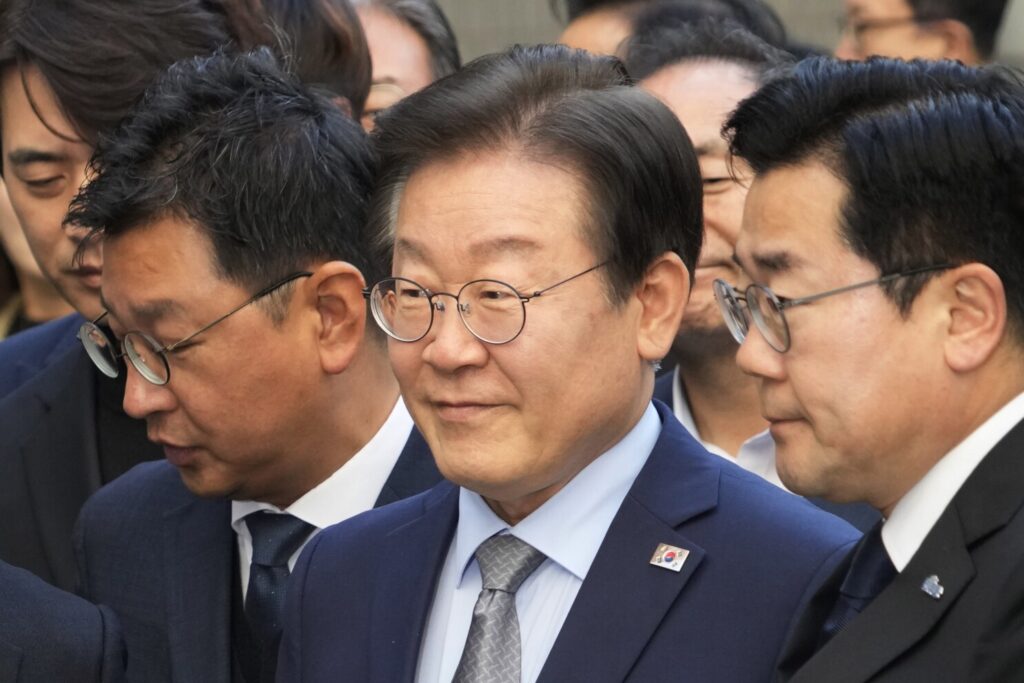South Korean opposition leader Lee Jae-myung was convicted Friday of violating election law, receiving a suspended prison sentence that could derail his presidential ambitions and reshape the country’s political landscape ahead of next year’s election.

The Seoul Central District Court found the Democratic Party leader guilty of making false statements about a land development project during his 2021 presidential campaign, sentencing him to one year in prison, suspended for two years. Lee immediately announced his intention to appeal.
“It’s a conclusion that I cannot accept,” Lee told reporters while leaving the court, where he faces another ruling November 25 on separate charges of allegedly suborning perjury.
The conviction threatens to sideline one of South Korea’s most prominent political figures, who narrowly lost the 2022 presidential election to conservative Yoon Suk Yeol. Lee’s prospects had surged following his party’s landslide victory in April’s parliamentary elections, which strengthened opposition control over the legislature amid President Yoon’s record-low approval ratings.
Lee’s dramatic political journey from child factory worker to presidential contender has been both compelling and controversial. After dropping out of school and suffering an industrial accident, he rose through the ranks to become mayor of Seongnam before emerging as a national political figure, though his career has been dogged by scandals and alleged organized crime connections.
In January, Lee survived a knife attack that required surgery for a neck wound, adding another dramatic chapter to his turbulent political career. He faces additional legal challenges, including prosecutors’ 2022 indictment over alleged false claims about development projects during his tenure as Seongnam mayor from 2010 to 2018.
The opposition leader has consistently denied wrongdoing, characterizing the investigations as political persecution by President Yoon, a former prosecutor. “This is clearly a political vendetta,” Lee has maintained, pointing to Yoon’s background in prosecution.
The case highlights deepening political divisions in South Korea, where Lee’s Democratic Party has positioned itself as a champion of reform against what it describes as politically motivated prosecutions by Yoon’s conservative administration.
The verdict comes at a crucial moment in South Korean politics, as parties begin positioning themselves for next year’s presidential election amid growing public discontent with the incumbent administration’s handling of economic and social issues.



